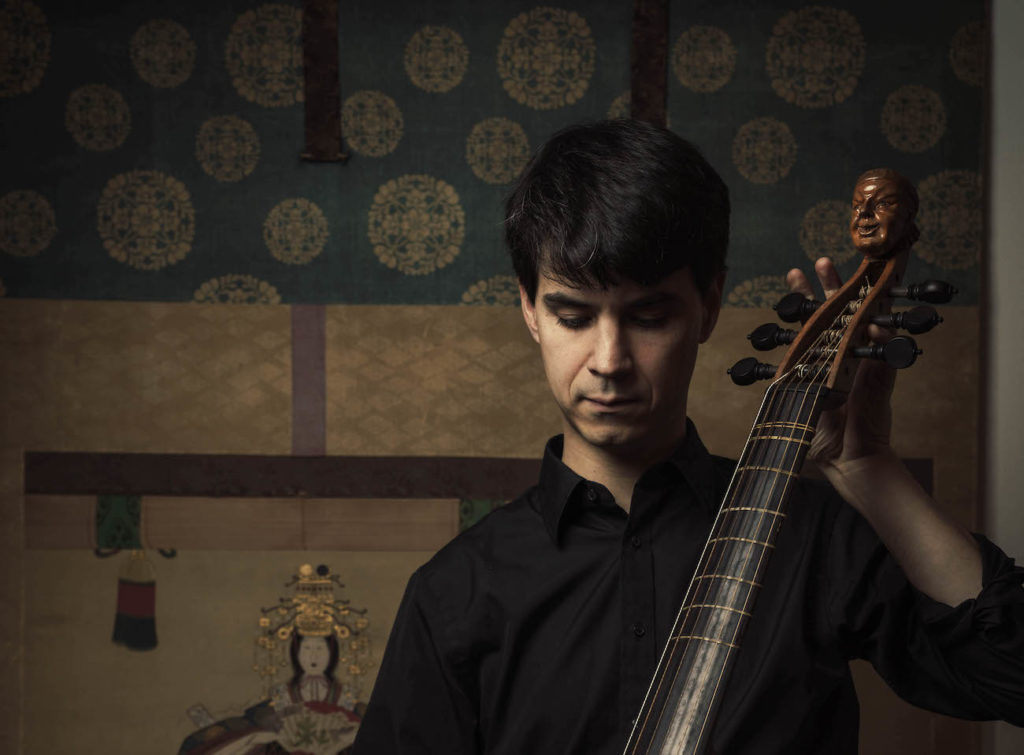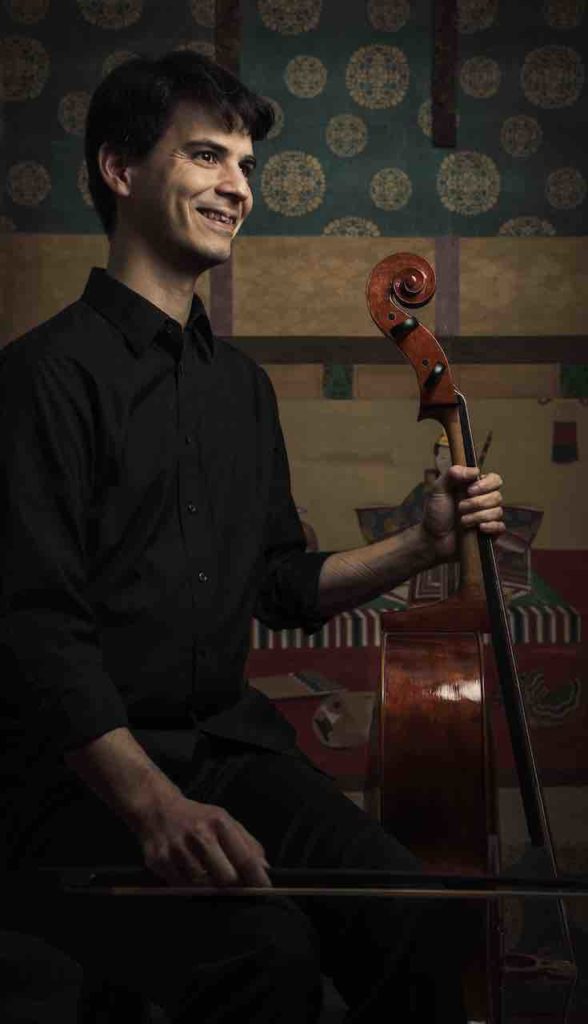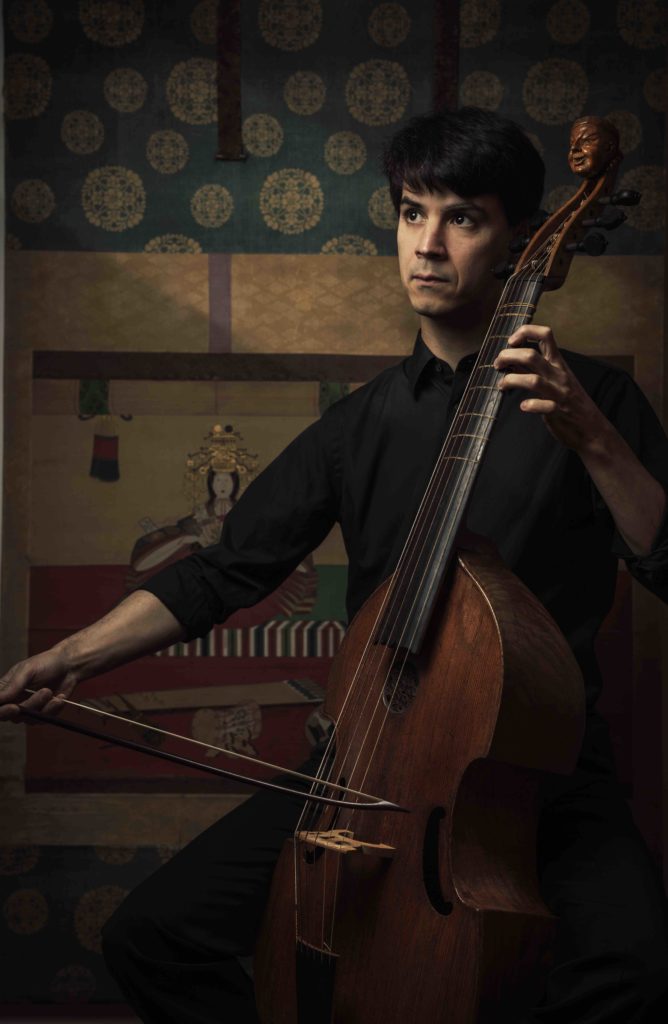
Inspired by the 18th-century ideal of joining “head, heart and hand” Viktor Töpelmann strives to be a well-rounded musician: he is an eminent performer on the viol and the baroque cello with a passionate enthusiasm for early music. His profound knowledge of performing practices and of the historical and intellectual environment, in which the music was composed and performed, provides a rich source of inspiration for a creative approach to music making today.
Viktor Töpelmann read music at King’s College London and studied baroque cello and viola da gamba at the Royal Academy of Music London and at the Hochschule für Musik Köln. In 2016 he was awarded a PhD in historical musicology at King’s College London, which was fully funded by the King’s College Graduate School.
Equally in demand as cellist and viol-player, Viktor Töpelmann performed widely as soloist, chamber musician and orchestra member. He appeared at some of the most prestigious festivals and concert venues throughout Europe and in Asia. From 2015 to 2022, he was the artistic director of the Munich based chamber choir Vokal Ensemble München. As musicologist he has researched and published widely on the Mozart family, Salzburg culture in the 18th century and historical string instruments. Many of his carefully planned concert programmes are testament to his broad knowledge and imaginative musical vision.

Performance
As a performer on the baroque cello and the viol Viktor Töpelmann relishes the diversity of historical string instruments of the 8-foot register. He performs on various baroque cellos and viols and explores the specific historical playing techniques as well as the particular expressivity of each instrument. Viktor Töpelmann’s repertoire comprises the virtuoso bass diminutions of the 16th and 17th century, the baroque solo repertoire for the viol from Tobias Hume to Marin Marais and Carl Friedrich Abel and cello music from Domenico Gabrielli to Ludwig van Beethoven. He released his first solo CD with 17th-century music for viol and organ from the south of the German speaking countries in 2021. It was recorded using two historical instruments of the region: a viol by Hannß Khögl (Vienna 1674) and an organ by Hans Vogl (1662) at the church of St. Stephanus Vormoos.
While he was still studying in Cologne, Viktor Töpelmann played the cello with the L’Orfeo Barockorchester Linz and with Concerto con anima (Cologne). Since then he went on to perform as cellist and viol-player throughout Europe, working with conductors such as Gustav Leonhardt, Laurence Cummings, Shunske Sato et al. In 2008 he was a founding member of The Wallfisch Band, an ensemble directed by Elizabeth Wallfisch.
With his own group Ensemble Philomusus Viktor Töpelmann focuses on English and German music of the 17th century ranging from Orlando Gibbons and Heinrich Schütz to Henry Purcell and Dieterich Buxtehude. Concerts as soloist on the viol and the baroque cello complement his performance activities and he appeared internationally alongside musical colleagues such as Elizabeth Wallfisch (violin), Simon Standage (violin), Roland Götz (harpsichord & organ) and Daniela Niedhammer (harpsichord & organ).

Conducting
From 2015 to 2022 Viktor Töpelmann was the artistic director of the Vokal Ensemble München. Their performances regularly received highest accolades from the press: ‘excellent! eminent! such attributes come to mind after the concert with the Vokal Ensemble München’ (Süddeutsche Zeitung, 15. 7. 2019). Another paper enthuses about ‘a choir which presents the captivating beauty of the music with great intensity of sound and expression’ (Münchener Merkur, 23. 3. 2016). According to the Süddeutsche Zeitung Viktor Töpelmann possesses a ‘unique calmness’ that ‘defines the charisma of the Vokal Ensemble’ for he ‘allows his singers to take their time in exploring each piece, to penetrate its essence and, ultimately, to fully merge with the music’ (Süddeutsche Zeitung, 5. 3. 2018).
From 2011 to 2016 Viktor Töpelmann lead the Collegium Muwicum, a chamber orchestra at the music department of the Ludwig-Maximilians-Universität München. Apart from choral and orchestral concerts Viktor Töpelmann has also conducted performances of large-scale oratorios and operas, such as Heinrich Schütz’s Historia von der Auferstehung Jesu Christi and Weihnachtshistoria, Johann Sebastian Bach’s Johannespassion, Henry Purcell’s Dido and Aeneas und Fairy Queen, Johann Michael Haydn’s Missa St. Hieronymi or Marc-Antoine Charpentier’s Te Deum.

Musicology
Viktor Töpelmann’s musicological interests focus two key areas: firstly, historical performance practices and organology and, secondly, 17th– and 18th-century musicians and their social contexts. He has published articles and book chapters in German and in English on the history of the baroque cello and the viol (Laaber Verlag, Lilienthal 2020), on performances of Johann Heinrich Rolle’s oratorio Der Tod Abels in Salzburg and Kremsmüster (in Kirchenmusikalisches Jahrbuch, vol. 100, ed. by Ulrich Konrad, Paderborn 2017) and on musical life in Salzburg during Wolfgang Amadé Mozart’s time in his native city (in Mozart in Context, ed. by Simon Keefe, Cambridge 2018).
Viktor Töpelmann’s doctoral dissertation at King’s College London was fully funded by the King’s College Graduate School. His thesis ‘The Mozart Family and ‘Empfindsamkeit’: Enlightenment and Sensibility in Salzburg 1750–1790’ attracted broad interest within the community of Mozart scholars.

Teaching
As a dedicated tutor Viktor Töpelmann has taught baroque cello, viol and seminars in historical performance practice at several music colleges and universities as well as on regular summer courses. At the Royal Academy of Music London he gave lectures in historical performance practice on topics such as historical temperaments, tempo rubato and the art of ornamentation. He also taught the viol at the Royal Academy of Music from 2011 until 2014. He held a teaching assignment at the Ludwig-Maximilans-Universität München from 2011 until 2016, where he lead a chamber orchestra. He is regularly invited to Taiwan where he runs orchestral and chamber music projects in early music and where he also teaches baroque cello and viol.
He teaches the viol and chamber music on an annual summer course for early music in Zell an der Pram in upper Austria and he organises a course for string players at the Cistercian Abbey Oberschönenfeld near Augsburg.

